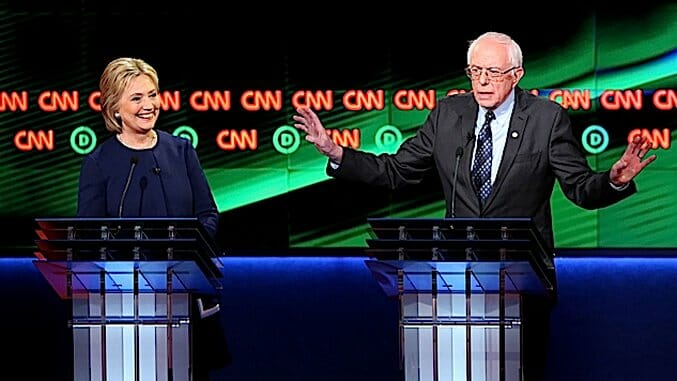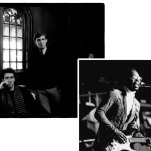Explaining the Bernie/Hillary Generational Divide: A Millennial Perspective
Photo courtesy of Getty
The Democratic presidential primary has largely come down to a generational divide. Older Democrats — yesterday’s flower children — who grew up through the Civil Rights Era, the Vietnam War, and the southern realignment generally (but certainly not exclusively) prefer Hillary Clinton, while Millennials and younger Americans prefer Bernie Sanders by historic margins.
We have heard these older voters time and again in the media: They see the possibility of electing Clinton as a culmination of years of fighting for equality. Reagan’s Revolution tempered their expectations, so they view Sanders as a pie-in-the-sky candidate and characterize my generation as naive. Due to a lack of Millennial voices in the media, that characterization has stuck.
It is time to change the narrative, and explain why we Millennials overwhelmingly stand with Sanders.
My generation is cautiously optimistic about social issues. We have embraced legal equality, acceptance, and diversity. Popular culture reflects our attitudes. Though there are many necessary battles to fight — especially in terms of LGBTQ, women’s, and racial justice — we are slowly winning the culture war. However, this optimism does not extend to economic issues or political corruption. In an article titled, “Like It or Not, the Democratic Party Now Must Answer to Millennials,” Truthout notes:
As the 2016 State of the Millennial report noted in its assessment of the challenges facing young people, “48 percent of Millennials now believe that the American Dream is dead.”
We have many reasons for this pessimism. The United States has essentially become an oligarchy wherein public opinion is outweighed by the voices of the wealthy, in terms of affecting public policy. Such was the finding of a recent study by professor Martin Gilens of Princeton University, and Professor Benjamin I. Page of Northwestern University. Our government prioritizes the demands of the wealthy. Millennials understand that time will not solve that problem. Thanks to a series of damaging court decisions stemming from Buckley v. Valeo, the amount of money being spent on elections is, as Bernie Sanders says, “obscene,” and our elected representatives spend half their time fundraising. Moreover, lobbyists write legislation that gets passed into law by our elected officials, who often become lobbyists when they leave office. The system is broken.
Many of us graduated college expecting to be able to attain the kind of lives our parents told us we could have, but the job market we found ourselves in was next to impenetrable — part of the reason Millennials are underrepresented in the media.
-

-

-

-

-

-

-

-

-

-

-

-

-

-

-

-

-

-

-

-

-

-

-

-

-

-

-

-

-

-

-

-

-

-

-

-

-

-

-

-








































